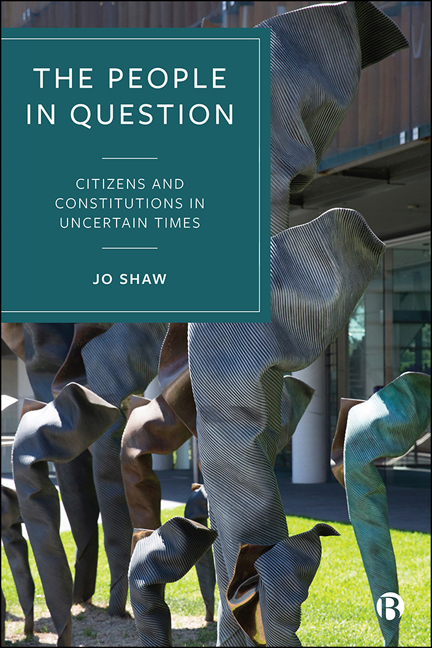PART II - Constitutional Citizenship Unpacked
Published online by Cambridge University Press: 18 March 2021
Summary
In a classic contribution to understanding citizenship, Verena Stolcke (1997, 61) argued that:
Of the three constitutive elements of the modern state, a territory, a government, a people, circumscribing the “people” proved to be the most controversial issue…. A territory without a people, a government without a clearly bounded community to be governed, makes no sense. Hence, bounding the citizenry, that is determining the conditions for becoming a member of a state, acquired a logic of its own as a fundamental constitutive political dilemma in the formative period of the modern territorial nation-states.
In this part of the book, across three chapters, we will explore how both the practical ‘nuts and bolts’ of the constitutional framework and the ideas of constitutionalism can operate to structure or fill out this controversial issue relating to the people of the state. We will show how these issues play out by exploring three interrelated sets of questions concerned with (a) constitutional ideals and identities; (b) the definition of who are and who are not the citizens; and (c) the challenge of identifying citizenship in terms of (constitutional) rights and duties. These are above all what questions, which enable the study of citizenship as a set of practices: from this thematic approach, what can we discern about the relationship between citizenship and constitutional law? The aim is, through the juxtaposition of conceptual reflection and practical illustration, to pull out a preliminary set of answers to the questions posed in Chapter 1: What does it mean to buttress claims to the legitimacy and authority of national concepts of citizenship (a) by reference to a constitutional concept of the citizens or of ‘the people’ and (b) through the regulation of citizenship (directly or indirectly) via constitutional law?
A passing familiarity with many of the standard works on citizenship in the late 20th and early 21st century will reveal that there are strong parallels between the three-way division adopted in this part of the book and many efforts by scholars to encapsulate the sphere of citizenship. The distinction that Jean Cohen (1999) draws, between the juridical, the political and the identitarian elements of citizenship, was highlighted in Chapter 1. There are many other examples of closely aligned citizenship ‘triptychs’.
- Type
- Chapter
- Information
- The People in QuestionCitizens and Constitutions in Uncertain Times, pp. 61 - 62Publisher: Bristol University PressPrint publication year: 2020



